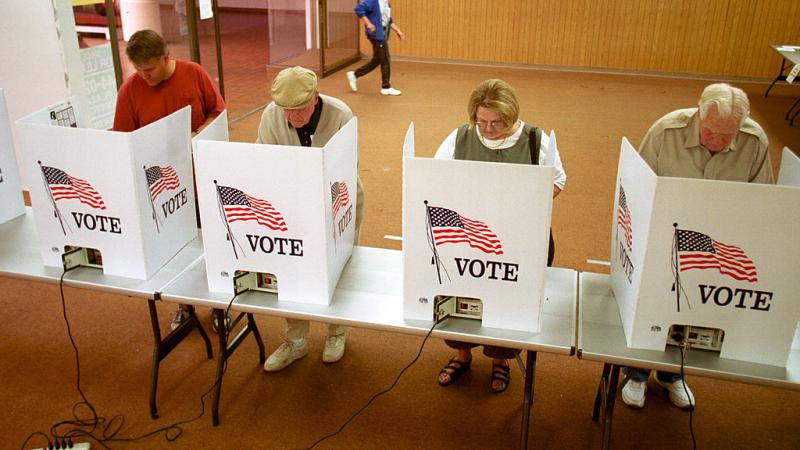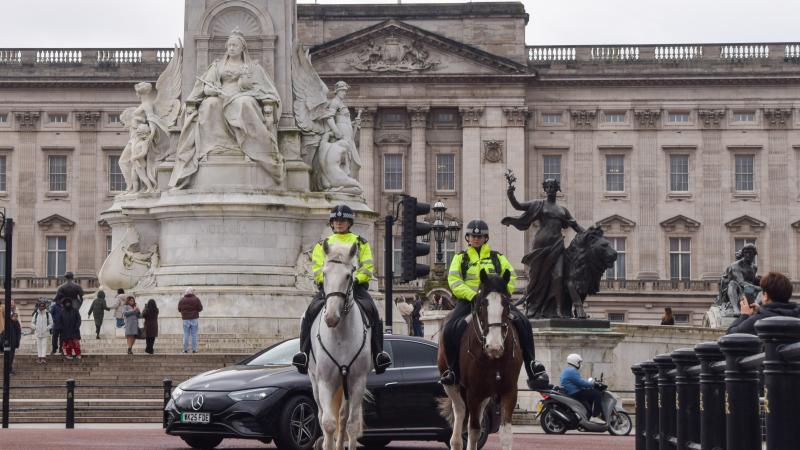A year later, Georgia election official views controversial Trump call as 'just a conversation'
Brad Raffensperger pointedly declined to say anything illegal occurred in call or that he was threatened to take any specific action.
A year later, a now-infamous call between President Trump and his advisers with Georgia election regulators is still generating attention, with even a local prosecutor and the Jan. 6 commission in Congress inquiring whether the call violated any laws.
But the man on the receiving end of the call — Georgia Secretary of State Brad Raffensperger — says looking back he views the call as "just a conversation" in which he conveyed to the 45th president that allegations about election irregularities in Georgia simply were not supported by the facts.
In an interview with Just the News, Raffensperger pointedly declined to say anything threatening or illegal happened on the call, though he previously has claimed in a book he took the call as a threat.
"Well, it's pretty obvious what the president wanted," Raffensperger said during an interview aired Tuesday on the John Solomon Reports podcast. "We all want to win. I get that."
Recounting many of the allegations Trump and his allies mentioned on the call — from thousands of dead or underage voters to illegal ballots mysteriously appearing in the Atlanta voting center — Raffensperger said every claim was evaluated and probed by his office, the FBI or the Georgia Bureau of Investigation and none could be corroborated, with many being outright debunked.
Trump allies, for instance, claimed there were 10,000 or more ballots cast by deceased people. An audit, in fact, found only four.
"So I settled that," Raffensperger said. "And I know there is a lot of urban legends out there. But I look at what President Trump wanted. And it's just obvious that his people really filled him with a lot of misinformation and falsehoods. And maybe perhaps they believed it. But it was never supported by the facts."
Raffensperger, however, did reveal a new election integrity issue his office is investigating right now: an allegation of systematic ballot harvesting during the state's 2020 general election and subsequent U.S. Senate runoff contests. He said he may soon issue subpoenas to secure critical evidence in that probe.
The allegations came from a conservative voter integrity group called True the Vote and include video footage of people stuffing ballots into drop boxes, smartphone geospatial data showing possible ballot couriers near the drop boxes and statements from one man who told the group he participated in the illegal ballot-gathering scheme along with others and nonprofit groups, according to the group's complaint.
Raffensperger's office is particularly interested in the potential witness, identified in the complaint as John Doe, and has launched a full investigation.
"If people give us, you know, credible allegations, we want to make sure that we do that," Raffensperger told Just the News. "And we have that right now as an ongoing investigation."
In a recently published book, Raffensperger claimed he felt threatened by the call. "I felt then — and still believe today — that this was a threat," he wrote. "Others obviously thought so, too, because some of Trump's more radical followers have responded as if it was their duty to carry out this threat."
But in Tuesday's interview, he pointedly declined to say he was threatened to take any action or that anything illegal happened, dismissing the call as "just a conversation."
"Do you think there was something illegal or threatening to you personally, that violated the law?" Raffensperger was asked Tuesday.
"I'm an engineer and not a lawyer, so I don't know about that aspect," he answered. "But I just think we had a conversation and obviously I just respectfully wanted to let President Trump know there wasn't the votes there. I know they didn't like the facts, but those were the facts.
"As a Republican I wish President Trump would have won," he added. "But our job was to follow the law, follow the Constitution."
Raffensperger has repeatedly tried to put the matter to rest, saying it is more important to focus on future election integrity issues, like getting a state constitutional amendment to ban non-citizen voting, than to rehash the 2020 election.
In the last two years, Democrat-led communities like New York City, San Francisco, two towns in Vermont and several cities in Maryland have already changed their laws to let non-citizens vote in local elections. Federal law prohibits non-citizens from voting in federal elections.
In the interview aired Tuesday, Raffensperger explained why he wanted the constitutional amendment even though his state's law already prohibits foreigners from voting in elections.
"Well, laws can be changed," he said. "The constitution is much more difficult to change. Therefore, I've already asked and requested the General Assembly to go ahead and put a constitutional amendment on the ballot for November 2022 to make sure only Americans vote in our elections to Georgia."
















